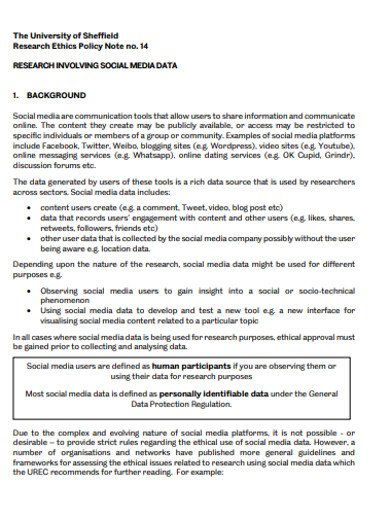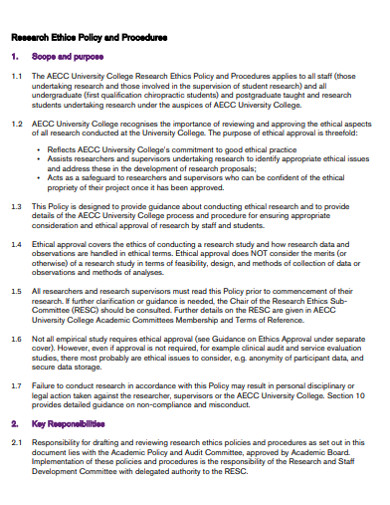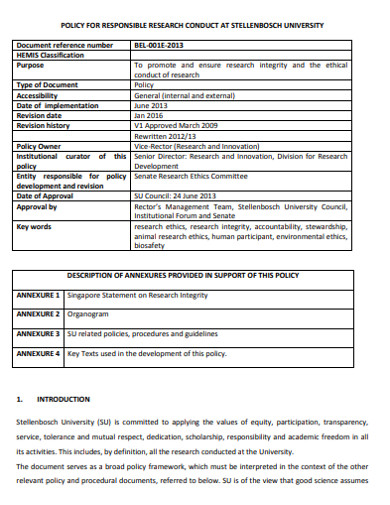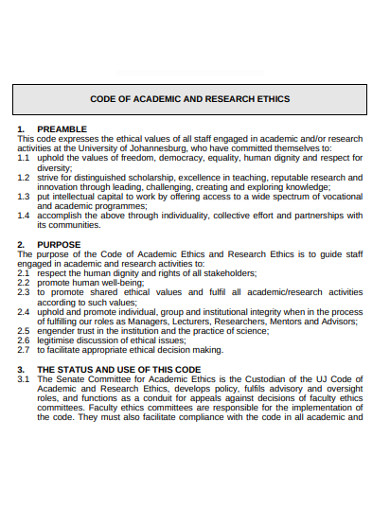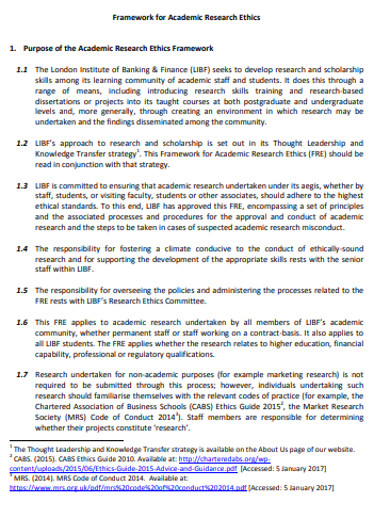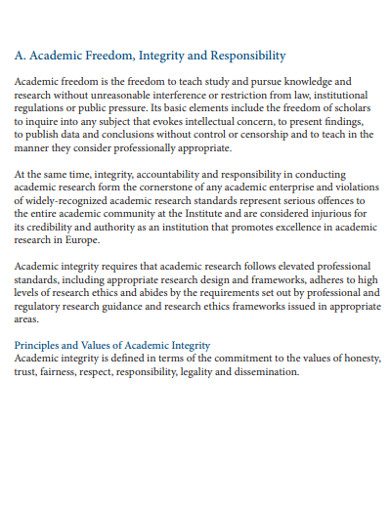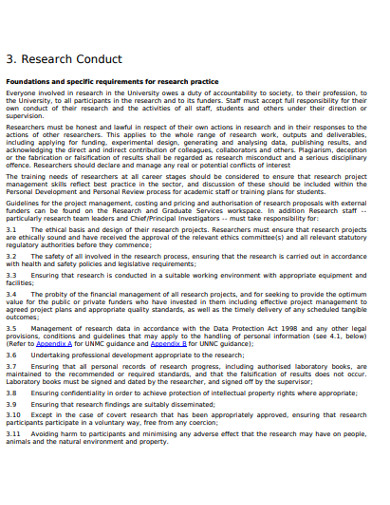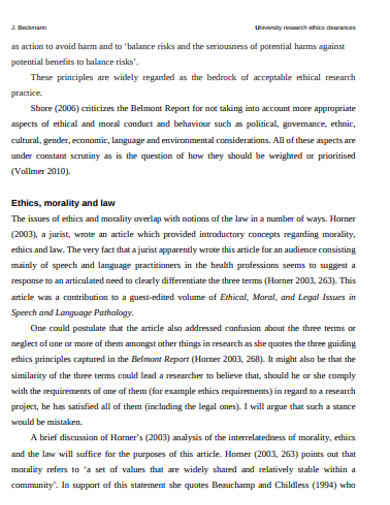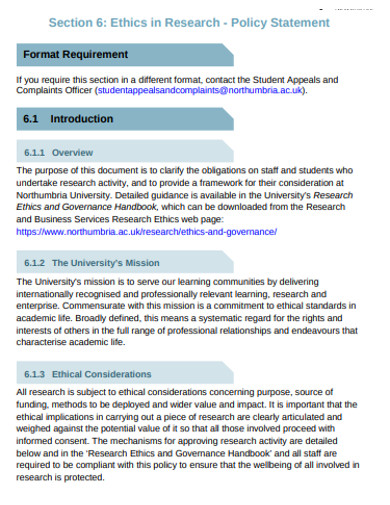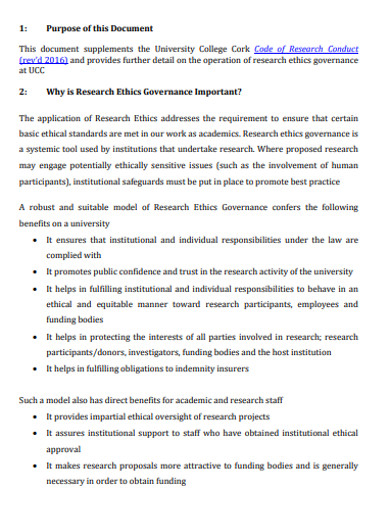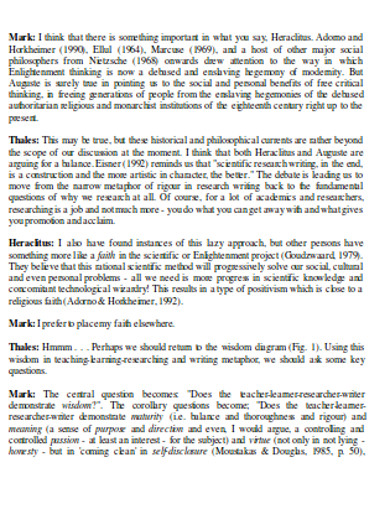10+ Academic Research Ethics Examples to Download
The academe is a living body. It grows with the available knowledge and the means to acquire updated information. Breakthroughs stemmed from developments in the academic community translated into real-world applications. Thus, the stagnation of knowledge and complacency in what we know will plunge society into dystopia. In this sense, ethical academic research is the lifeblood of progress.
Academic research exists within the halls of an academic institution, but the findings create large ripples outside the community. It was university research papers that brought us computers and the Internet. However, we should not be blinded by its power, lest we forget that it was the justification for the unforgivable crimes against humanity. It is no cause for debate that no amount of benefit from any academic endeavor can justify doing harm unto others.
Unethical Infractions
War brings out the worst in us.
Rubbles and burning buildings aren’t the only price we pay. It is also during these wars that scientists make giant errors in judgment. Gunfires and explosions overshadow the absolute evil of grim and gruesome crimes done underground in the pursuit of victory.
At the height of the Second World War, resilience on the battlefield gives a side a pivotal advantage. Therefore, Nazi scientists performed unconsented medical experiments on prisoners for the effects of diseases, chemicals, and extreme external conditions that killed thousands. Not sparing anyone from becoming victims, Nazis also performed human experiments on twins and triplets with irreversible consequences.
Quieter days don’t mum ethical issues.
Even during what we deem peaceful times, the academe is not free from ethical dilemmas. The academe is still plagued with research misconduct. Despite the leaps we have taken towards progress, we still uphold the old restraints on where a researcher cannot venture.
When biophysicist He Jiankui announced that he had created the world’s first gene-edited babies, it was as if the Bible’s Moses parted the world into lauders and critics. Some considered Jiankui’s work revolutionary in safeguarding humans against the ill effects of HIV. Others talk of the blurring lines between progress and morality. Heeding the indignation of the latter, the Chinese government has charged the scientists involved with illegal medical practice to deter followers.
The Good Parts
We are living longer.
Before we cast academic research out for the evils it has brought to man, let us not discredit it for the good things it gave the world. Although Alexander Fleming is credited for the discovery of penicillin, it was the university research by Howard Florey and Ernest Chain that allowed mass production of the antibiotic for use against bacterial infections that would have killed a person in the past. More on human health, Frederick Banting and John Macleod shared a Nobel Prize for academic research on insulin injections as a treatment for diabetes.
We are living better.
Much of the university’s thesis papers played a part in the world going online and the birth of Google. The Internet has contributed much to the world’s technological advancement, which opened more doors for future research. From health to leisure, we have been benefiting from the boom of breakthroughs. The rate of progress is at an unprecedented scale. Research has given us things from burglar alarms to Gatorade. Indeed, today is a good day to be alive.
Knowledge is amoral. Its morality is a burden shared by everyone using the information. As researchers, we should not stray from what is ethical for a self-centered end. Academic research can amount to great things, but it should not be through abhorrent acts.
10+ Academic Research Ethics Examples
As academics and scholars, we gamble our reputation and the academic integrity of our research papers when we violate the guidelines set by an ethics committee. And it will be a losing battle. Therefore, we should always practice ethical research.
1. Academic Research Ethics Policy Example
2. College Research Ethics Example
3. Sample Academic Research Ethics Example
4. Basic Academic Research Ethics Example
5. Framework for Academic Research Ethics Example
6. Formal Academic Research Ethics Example
7. University Research Conduct Ethics Example
8. Printable Academic Research Ethics Example
9. Academic Research Ethics Policy Statement Example
10. Formal College Research Ethics Example
11. Academic Research Ethics in DOC
General Criteria for Ethics
In writing our papers, you shouldn’t just focus on the content. You should be mindful, too, of how you arrived to what you are writing. Include an ethical research checklist in your research project plans.
1. Free Choice And Informed Consent
Obtain a voluntary and informed approval. Whether you are using humans as subjects or you want to get a hold of their data, you should always gain their permission. This step is best done with proper paperwork. Prepare a consent form disclosing the details that could influence whether a participant will consent to his or her participation in your research.
2. Protection Of Vulnerable Groups
There are people that are not able to give informed consent. They are likely to be coerced into saying yes, or may not understand fully well what will be done to them. Thus, they are considered vulnerable and their interests should be protected from exploitation. This group includes, but aren’t limited to, human fetuses, children, people with forms of disability, students, and employees. When need be, the consent may be obtained from a guardian or the one directly responsible for protected person.
3. Respect Of One’s Autonomy
You should diligently uphold one’s right to privacy. When research participants volunteer their information to you, you should see to it that the data is kept between consented parties. When information needs to be disclosed for academic purposes, it should not be traceable to its owner. Confidentiality agreements protect the people against any form of harm that they might acquire from participation.
4. Weighing Benefits And Risks
Be of benefit, do not harm is the Hippocratic Oath in medicine. However, researchers are no exemption from this principle. You are responsible for the well-being of your participants. You must also make sure that the benefits in your research will always outweigh any amount of risk or harm that the study posed on the involved life forms. Debriefing of the participants after the research is a mandate so as not to create lasting damage.
Ethical academic research safeguards society from exploitation and abuse of liberty. Therefore, researchers should abide by the rules of ethics in the pursuit of knowledge. To tweak a principle in law: One’s academic freedom stops when the right of others begins.



